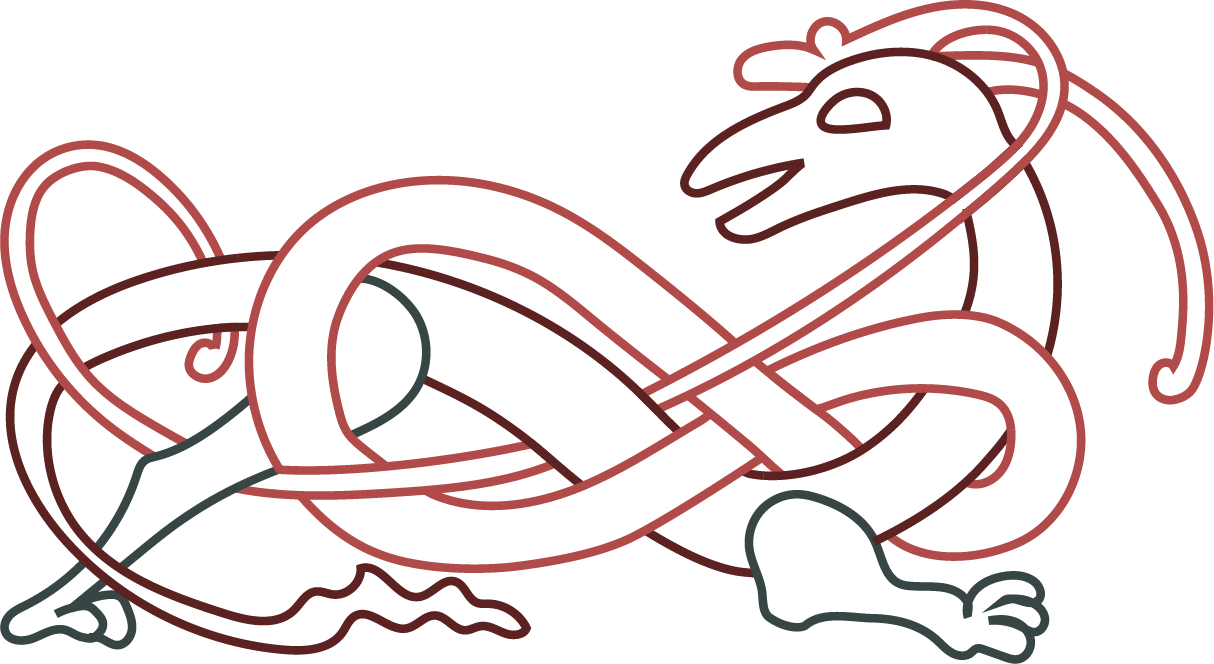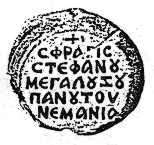
Serbian scholar Slavica Rankovic will compare two lives of Stefan Nemanja, the Grand Prince of Serbia and challenger of Byzantine Emperors, written by two of his sons: Stefan the First-crowned, the first Serbian king and Saint Sava, the first Serbian archbishop.
The lecture is a part of the cycle Life and Biography in the Middle Ages.
Annotation:
The course aims to depict the forms and shapes of the genre of biography in the Middle Ages. It attempts to cover a broad spectrum of cultures and languages – Latin, Hebrew, Middle High German, Occitan, Old Norse or Balkan – and a full range of figures whose life medieval biography could depict: heathen and Christian kings, heroes, saints, Jesus as well as adventurers and dark heroes.
However, the course plans to offer more than an analysis and classification of biography subgenres and picturesque personalities. All the lectures should address the question of what was substantial in a human life for the medieval man, what gave it value and endowed it with meaning.
All the lectures and discussions will be in English, the lectures will be held by guest professors from foreign universities.
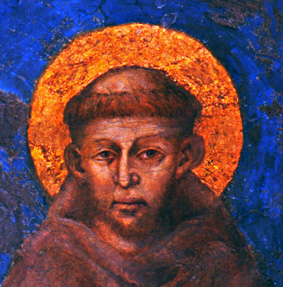
Famous Austrian medievist Rudolf Simek (*1954) from Rheinische Friedrich-Wilhelms-Universität Bonn will speak about the constitution of the lives of the medieval saints.
The lecture is a part of the cycle Life and Biography in the Middle Ages.
Annotation:
The course aims to depict the forms and shapes of the genre of biography in the Middle Ages. It attempts to cover a broad spectrum of cultures and languages – Latin, Hebrew, Middle High German, Occitan, Old Norse or Balkan – and a full range of figures whose life medieval biography could depict: heathen and Christian kings, heroes, saints, Jesus as well as adventurers and dark heroes.
However, the course plans to offer more than an analysis and classification of biography subgenres and picturesque personalities. All the lectures should address the question of what was substantial in a human life for the medieval man, what gave it value and endowed it with meaning.
All the lectures and discussions will be in English, the lectures will be held by guest professors from foreign universities.
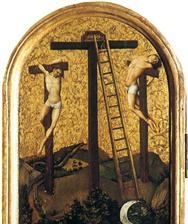
German medievist and germanist Wilhelm Heizmann (Ludwig-Maxmilians-Universität München) will speak about the constitution of lives of the two prototypic villains of the European Middle Ages: Dismas and Gesmas, the two thieves on the Cross.
The lecture is a part of the cycle Life and Biography in the Middle Ages.
Annotation:
The course aims to depict the forms and shapes of the genre of biography in the Middle Ages. It attempts to cover a broad spectrum of cultures and languages – Latin, Hebrew, Middle High German, Occitan, Old Norse or Balkan – and a full range of figures whose life medieval biography could depict: heathen and Christian kings, heroes, saints, Jesus as well as adventurers and dark heroes.
However, the course plans to offer more than an analysis and classification of biography subgenres and picturesque personalities. All the lectures should address the question of what was substantial in a human life for the medieval man, what gave it value and endowed it with meaning.
All the lectures and discussions will be in English, the lectures will be held by guest professors from foreign universities.
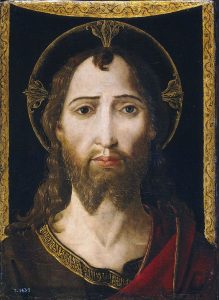
Hungarian scholar David Falvay (ELTE Budapest) will speak about the late medieval lives of Christ and evaluate them as reflections of the medieval Christian piety.
The lecture is a part of the cycle Life and Biography in the Middle Ages.
Annotation:
The course aims to depict the forms and shapes of the genre of biography in the Middle Ages. It attempts to cover a broad spectrum of cultures and languages – Latin, Hebrew, Middle High German, Occitan, Old Norse or Balkan – and a full range of figures whose life medieval biography could depict: heathen and Christian kings, heroes, saints, Jesus as well as adventurers and dark heroes.
However, the course plans to offer more than an analysis and classification of biography subgenres and picturesque personalities. All the lectures should address the question of what was substantial in a human life for the medieval man, what gave it value and endowed it with meaning.
All the lectures and discussions will be in English, the lectures will be held by guest professors from foreign universities.
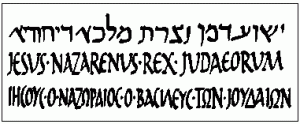
Young Czech Hebraist Milan Žonca (Charles University, Prague) will speak about spectacular, scurrile and blasphemous Jewish medieval narratives about the life of Jesus Christ
The lecture is a part of the cycle Life and Biography in the Middle Ages.
Annotation:
The course aims to depict the forms and shapes of the genre of biography in the Middle Ages. It attempts to cover a broad spectrum of cultures and languages – Latin, Hebrew, Middle High German, Occitan, Old Norse or Balkan – and a full range of figures whose life medieval biography could depict: heathen and Christian kings, heroes, saints, Jesus as well as adventurers and dark heroes.
However, the course plans to offer more than an analysis and classification of biography subgenres and picturesque personalities. All the lectures should address the question of what was substantial in a human life for the medieval man, what gave it value and endowed it with meaning.
All the lectures and discussions will be in English, the lectures will be held by guest professors from foreign universities.
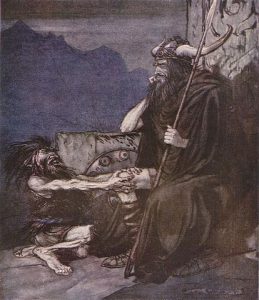
Young German scholar Florian Deichl (Ludwig-Maxmilians-Universität München) will speak about the sinister figure of Hagen in the German medieval Song of the Nibelungs and try to uncover the origins of the human fascinations by so called “dark heroes”
The lecture is a part of the cycle Life and Biography in the Middle Ages.
Annotation:
The course aims to depict the forms and shapes of the genre of biography in the Middle Ages. It attempts to cover a broad spectrum of cultures and languages – Latin, Hebrew, Middle High German, Occitan, Old Norse or Balkan – and a full range of figures whose life medieval biography could depict: heathen and Christian kings, heroes, saints, Jesus as well as adventurers and dark heroes.
However, the course plans to offer more than an analysis and classification of biography subgenres and picturesque personalities. All the lectures should address the question of what was substantial in a human life for the medieval man, what gave it value and endowed it with meaning.
All the lectures and discussions will be in English, the lectures will be held by guest professors from foreign universities.
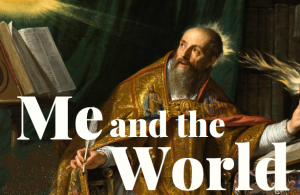
Lecturer: Klára Soukupová (Prague).
Annotation:
The genre of autobiography is often situated on borderline between fiction and non-fiction; autobiography refers to real characters and events, but at the same time it is a literary work of art, a verbal construct. The lecture concentrates on major problems of the genre of autobiography (truth, memory, subjectivity) as well as on history of autobiography (canonical texts) and it goes through development of theory of autobiography in 20th century.
The lecture is a part of the series Me and the World … Autobiography in Medieval and Early Modern Europe.

Lecturer: Jürg Glauser (Zürich).
Annotation:
Icelandic literary culture of the seventeenth and eighteenth centuries still bears many traces of the medieval tradition. This is also the case when it comes to representations of self-conceptions as expressed in early modern autobiographies. The present paper deals primarily with two representative examples of the genre,
1) the priest Jón Magnússon’s (1610-96) Píslarsaga (1658-59, ‘Story of Sufferings’(English translation by Michael Fell as And Though This World with Devils filled. A Story of Sufferings, 2007)
2) Sjálfsævisaga (1750ff., ‘Autobiography’) by the priest síra Þorsteinn Pétursson á Staðarbakka (1710-85) Beyond being quite remarkable representations of autobiographies in general, the two texts display a number of features that are specific for this genre in the pre-modern era, such as the creations of individual selves in relation to God and society, the importance of Christian faith, belief, religion and theology, the vital role mental and physical health plays in the narratives. In Píslarsaga, an additional element that defines the text in a very specific manner are the descriptions of the prosecution of putative sorcerers in seventeenth century Iceland.
The lecture is a part of the series Me and the World … Autobiography in Medieval and Early Modern Europe.

Lecturer: Carolyne Larrington (Oxford).
Annotation:
This lecture will talk about some of the ways in which the poetic form of ‚ævidrápur‘ (deeds of a life) functions within the fornaldarsaga genre in Old Norse. These autobiographically styled poems look back over and reflect a little on the lives of the Viking ancestors of medieval Scandinavians. Some may indeed draw on ancient traditions, others be antiquarian re-imaginings, but their focus on violence, loss, regret – and even love – allows us draw parallels with other kinds of autobiographical composition.
The lecture is a part of the series Me and the World … Autobiography in Medieval and Early Modern Europe.

Lecturer: Jan Hon (Berkeley).
Annotation:
Henry Suso’s Vita narrates the life of a „Servant of Eternal Wisdom“ as a path from the state of sin to the state of „Gelassenheit“ (composure/serenity/“let-it-be-ness“) and unity with God. What makes this text unique even in the context of late medieval mysticism is its autobiographical impetus. Though narrated in the third person, the text uses a number of strategies to link the narrative to the historical figure of Henry Suso. That, in turn, makes the hagiographical tone of the account a notably risky endeavor: how can one authorize his own life, filled with self-induced suffering, as an imitatio Christi and, at the same time, present it as an example to be followed by others? The talk will discuss this tension between hagio-graphy and auto-bio-graphy along with the medial strategies in both the manuscript and the print transmissions employed to provide the audience with spiritual participation in the servant’s (self-)torturous way to God.
The lecture is a part of the series Me and the World … Autobiography in Medieval and Early Modern Europe.
